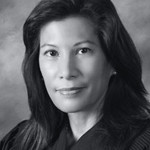‘Alternative’ Judge’s Group Gaining Momentum?
Juvenile Advocates Highlight Flaws In System
Top Ten Takeaways from Perrin Conference in L.A.
Civil Rights Becoming Key Budget Argument
The chief justice’s comments are getting broad play around the state, and even the Los Angeles Times, which has not exactly been a leader in the court crisis coverage, took note. You can see the Times story here.
Cutting-Edge Issues in Asbestos Litigation Conference
The Perrin Conference at the Beverly Wilshire Hotel ended yesterday (Tuesday, March 18). California asbestos judges from both Los Angeles and San Francisco participated. The CCM staff attended the conference and we will post an original summary of the conversations on later this week.
Fighting Over Those Three Little Words
Or even a “Deputy City Prosecutor.” The MetNews is reporting that B. Otis Felder, who is running for the judgeship being vacated by Michael Nash, is arguing that he can use that delegation because he was a full-time prosecutor in the “Volunteer Attorney Training Program” run by the L.A. City Attorney’s office. Responding to critics, he said that volunteer work is prosecutor enough. Critics say there may be a formal complaint to change the designation.
Another interesting candidate is Pamala F. Matsumoto, who is self-identified as an “Administrative Law Judge,” and is one of the former Superior Court referees dismissed during the 2012 budget cuts.
Here’s the MetNews report.
Here’s the new Los Angeles Times election coverage page, which offers a broad election story and mentions the Superior Court election only once, and then to dismiss it.
Some DA’s Will Become Judges Unopposed
Judicial Election Intimidation On Display in San Diego
The newspaper, perhaps oddly sidestepping the larger story of judicial electoral intimidation, still reports that federal prosecutor Carla Keehn “… is one of five people who have filed to run against judges on the local bench — an unusually high number of challenges to incumbent jurists. Typically judges are re-elected without opposition, as few lawyers will take on a sitting judge for fear of judicial enmity.”
